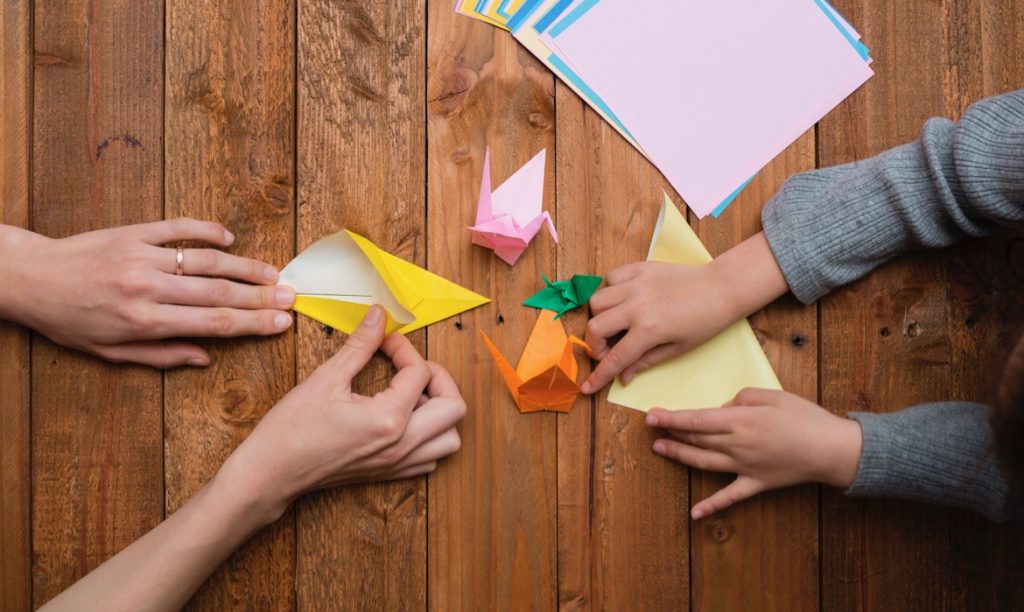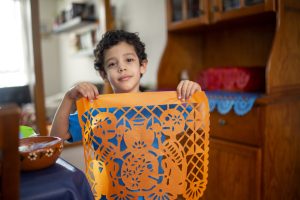There are lots of fun math activities for families to do together that don’t require special materials. In fact, with just a few sheets of paper, families can find fun ways to explore math ideas and problem solving!
Why Do Math with Paper?
Kids can learn a lot about math at home through hands-on, playful activities that inspire conversations about numbers, shapes, and spatial relations.
The activities outlined below introduce and reinforce math concepts while encouraging creativity. They are also easy to adapt for different ages and may be done with multiple kids at once. Because families can do them together, it’s a great opportunity to talk about math.
Materials
Many of these activities can be done with whatever paper is available—even scrap paper, newspapers, or magazine pages would work. Scissors, hole punchers, and pencils or markers will be helpful, too.
Math with Paper Activities
Origami
Origami is great for thinking about shapes and ideas of space and place. The same sheet of paper can look completely different depending on where and how it gets folded.
A quick search online will lead you to lots of origami instructions. Here are some origami projects to get you started:
- Beginner: Dog origami
- Intermediate: Heart origami
- Advanced: Swan origami
Paper Wizard
Mental imagery—the ability to imagine what a shape looks like or to move objects around in your mind—is an important part of math. This activity helps children practice thinking about spatial information and imagining how space can be transformed without actually seeing it.
- Get started: Paper wizard
- Try another one: Advanced Paper wizard
Even More Ideas
There are lots of ways to explore math with paper! Check out our printable Guide to Math with Paper for ways to keep going and to support children’s math thinking during all of these activities. You can also get creative and think of your own ways to do math with paper.



